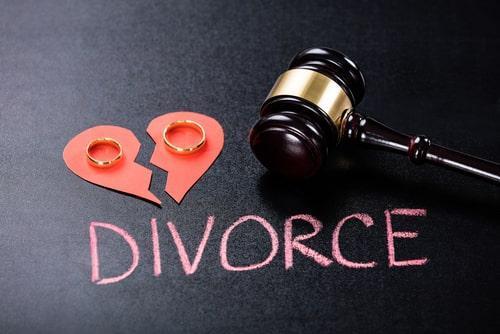Recent Blog Posts
What Can I Do About a Spouse Who Stalks Me Using Technology During Our Divorce?
 It is hard to even comprehend how much our society has changed in the past few decades. For example, a phone used to be something attached to a cord in your home which was capable of little more than making and receiving phone calls. Now, phones are devices we use to shop, browse the internet, manage financial affairs, and navigate the world around us. The technological advancements made in recent years have been a great benefit to society, but they can also be used as tools for abuse.
It is hard to even comprehend how much our society has changed in the past few decades. For example, a phone used to be something attached to a cord in your home which was capable of little more than making and receiving phone calls. Now, phones are devices we use to shop, browse the internet, manage financial affairs, and navigate the world around us. The technological advancements made in recent years have been a great benefit to society, but they can also be used as tools for abuse.
If your spouse is using technology to stalk you during your divorce, it can be incredibly frightening and unsettling. However, there are some steps that you can take to protect yourself and stand up for your rights.
Spying and Stalking During an Illinois Divorce
A huge part of any abusive relationship is control. When an abuser is losing control over his or her spouse, he or she may use various methods to continue the abusive behavior during a divorce. Stalking or spying on a spouse using technology is one of those methods. Spouses may use spyware on phones or computers, track GPS locations, or even use hidden cameras in order to follow their spouse’s every move.
Grounds for Divorce: Clearing Up the Confusion
 When someone begins to consider divorce, well-meaning family and friends may give them outdated or inaccurate advice. Divorce laws vary from state to state. Furthermore, the laws change frequently. So, if someone got divorced in 2015, they may have divorced under a completely different set of laws than someone in 2023. It is important for anyone contemplating divorce to educate themselves about the current divorce laws. Consult an experienced divorce attorney for help.
When someone begins to consider divorce, well-meaning family and friends may give them outdated or inaccurate advice. Divorce laws vary from state to state. Furthermore, the laws change frequently. So, if someone got divorced in 2015, they may have divorced under a completely different set of laws than someone in 2023. It is important for anyone contemplating divorce to educate themselves about the current divorce laws. Consult an experienced divorce attorney for help.
Grounds for Divorce in Illinois in 2023
Grounds are the legal justification for a divorce. Illinois used to have fault-based grounds for divorce. For example, a spouse could assert mental cruelty or adultery as a basis for the divorce. Fault-based divorces are no longer available in Illinois. The only grounds for divorce is irreconcilable differences between the parties, which means that there are two people who no longer want to be married and cannot work out their problems. This is called “no-fault” divorce.
Can We Remain Co-Owners of Our Business if We Get Divorced?
 For business owners, the last few years have been some of the most challenging they have ever faced. COVID-19 lockdowns, supply chain interruptions, record-high inflation, and worker shortages have all had a ripple effect on small businesses.
For business owners, the last few years have been some of the most challenging they have ever faced. COVID-19 lockdowns, supply chain interruptions, record-high inflation, and worker shortages have all had a ripple effect on small businesses.
Divorce is not just hard on couples, but also on the business they own together. When two married business owners decide to get divorced, deciding what to do with the family business is often a top concern. Many divorcing spouses wonder whether they can continue to run the business together after their divorce.
Legal, Financial, and Emotional Implications of Co-Owning a Business with an Ex-Spouse
Business owners have the right to enter into a business partnership with anyone they choose. The question of whether ex-spouses can co-own a business is not the primary question in a situation like this. The main question is whether the spouses should co-run a business.
Technology-Related Concerns Co-Parents May Need to Address When Developing Their Parenting Plan
 Technology has become an integrated part of our everyday lives. It is not uncommon to see children using smartphones, laptops, tablets, and other electronic devices as well. When divorcing parents set up their parenting plan, it is a good idea to ensure that the parents are on the same page about child-related issues. Increasingly, technology has become a source of contention for parents. Some parents allow their children to use electronic devices at any time. Others strictly monitor their child's “screen time.”
Technology has become an integrated part of our everyday lives. It is not uncommon to see children using smartphones, laptops, tablets, and other electronic devices as well. When divorcing parents set up their parenting plan, it is a good idea to ensure that the parents are on the same page about child-related issues. Increasingly, technology has become a source of contention for parents. Some parents allow their children to use electronic devices at any time. Others strictly monitor their child's “screen time.”
To reduce the possibility of conflict in the future, parents are encouraged to discuss issues like these and work out a plan in advance. As you develop your parenting plan, make sure to consider the following technology concerns.
When Is a Child Old Enough to Have A Smartphone?
Unlike cell phones from previous decades, today's cell phones are capable of accessing the Internet, buying products online, making video calls, and much more. Parents should ensure that they are on the same page about smartphones. Serious conflict can arise when one parent buys the child a smartphone without the other parent's knowledge or consent. Whether your children are toddlers or teenagers, it is important for parents to discuss when their child will have a smartphone, who will pay for the smartphone, and any rules regarding the use of the phone.
5 Reasons to Sign a Postnuptial Agreement
 Most people have heard of prenuptial agreements, but fewer are familiar with postnuptial agreements. Postnuptial agreements are similar to prenuptial agreements in that they provide a formal legal document that outlines how two spouses will handle their finances and other related matters during divorce. The difference between the two is that prenuptial agreements are signed before the marriage, while postnuptial agreements are signed after the couple has already been married. Postnuptial agreements can be incredibly helpful for couples facing uncertain financial futures or other issues. Here are five situations in which a postnuptial agreement may be beneficial.
Most people have heard of prenuptial agreements, but fewer are familiar with postnuptial agreements. Postnuptial agreements are similar to prenuptial agreements in that they provide a formal legal document that outlines how two spouses will handle their finances and other related matters during divorce. The difference between the two is that prenuptial agreements are signed before the marriage, while postnuptial agreements are signed after the couple has already been married. Postnuptial agreements can be incredibly helpful for couples facing uncertain financial futures or other issues. Here are five situations in which a postnuptial agreement may be beneficial.
Either Spouse Experiences a Financial Windfall or Loss
When one of the spouses suddenly experiences a financial windfall, such as an inheritance or lottery winnings, or suffers a major loss, such as the bankruptcy of a business venture they once owned, signing a postnuptial agreement can help protect both partners’ assets and financial future.
What is Divorce by Publication?
 Divorce is never easy. However, some people experience significant challenges when initiating a divorce. For some spouses, simply finding their spouse and serving the divorce petition is the hardest aspect of the split. If your spouse has gone missing or you do not know their whereabouts, how do you get divorced? In this blog, we will discuss divorce by publication and when you may be granted a divorce without your spouse’s participation.
Divorce is never easy. However, some people experience significant challenges when initiating a divorce. For some spouses, simply finding their spouse and serving the divorce petition is the hardest aspect of the split. If your spouse has gone missing or you do not know their whereabouts, how do you get divorced? In this blog, we will discuss divorce by publication and when you may be granted a divorce without your spouse’s participation.
Ending Your Marriage When You Cannot Locate Your Spouse
The spouse who initiates a divorce is called the petitioner. Typically, the petitioner "serves" or delivers the divorce petition to the other spouse, called the respondent. The petitioner may also hire a sheriff or special process server to serve notice of the divorce to their spouse. However, if the spouse cannot be located the situation becomes more complicated.
What Happens to Fine Art in an Illinois Divorce?
 For art lovers, an art collection is much more than an assemblage of art. It is an emotional connection, a source of pride and joy, and a representation of their investment in the world of art. Fine art may also be one of the most valuable assets a person owns. If you or your spouse have an expensive art collection and you plan to divorce, it is important that you understand how the artwork will be handled during the property division phase of the divorce process.
For art lovers, an art collection is much more than an assemblage of art. It is an emotional connection, a source of pride and joy, and a representation of their investment in the world of art. Fine art may also be one of the most valuable assets a person owns. If you or your spouse have an expensive art collection and you plan to divorce, it is important that you understand how the artwork will be handled during the property division phase of the divorce process.
Classification and Ownership of Fine Art in a Divorce
Fine art may be classified as marital property or non-marital property in a divorce. If a spouse owned a piece of art before getting married, the artwork is typically non-marital property. Art may also be classified as non-marital property if it is excluded from the marital estate through a prenuptial agreement. If a spouse purchased or received a piece of art during the marriage, it may be classified as marital property in an Illinois divorce. If artwork is a marital asset, both spouses have an ownership interest in it, and the spouses will need to divide the value of the asset between themselves during the divorce.
Divorce Involving False Allegations of Spousal Abuse
 If you are getting divorced and your spouse has accused you of domestic violence or abuse, you may not know where to start. Most people getting divorced have little experience in the court system, and they are not sure what to expect or how to handle this challenging situation.
If you are getting divorced and your spouse has accused you of domestic violence or abuse, you may not know where to start. Most people getting divorced have little experience in the court system, and they are not sure what to expect or how to handle this challenging situation.
One of the first things you need to do if your spouse accused you of abusing him or her is to secure reliable legal counsel. Your lawyer will be able to provide customized advice specific to your case and ensure that you address these allegations in a way that does not aggravate the situation.
How Accusations of Abuse Can Affect Your Case
Illinois is a no-fault divorce state, so the accusations of abuse will not be listed as grounds for divorce in the divorce petition. Furthermore, Illinois law states that court decisions regarding spousal support or property division will be made without regard to “marital misconduct” such as abuse or infidelity.
How do Subpoenas Work in a Divorce Case?
 Divorce cases vary significantly in complexity. When spouses own few assets and are willing to cooperate with each other and comply with the divorce process, the marriage can be dissolved with relative ease. However, high-asset divorce cases and high-conflict divorce cases are rarely this straightforward.
Divorce cases vary significantly in complexity. When spouses own few assets and are willing to cooperate with each other and comply with the divorce process, the marriage can be dissolved with relative ease. However, high-asset divorce cases and high-conflict divorce cases are rarely this straightforward.
Divorce lawyers have many different legal tools at their disposal during a divorce case. One such tool is a subpoena. Subpoenas are court orders requiring individuals to appear in court and provide testimony or documents related to the case. In a divorce setting, they can be used to compel a spouse to turn over financial records, produce emails and text messages, or give statements about their marital assets.
When and How Are Subpoenas Used in a Divorce?
Subpoenas can be used in cases when a spouse is uncooperative or refuses to divulge truthful, complete information. For example, a spouse who refuses to provide financial documentation showing his or her income may be served with a subpoena. Subpoenas may be served to individuals or businesses, such as banks or cell phone companies.
Factors to Keep in Mind When Dividing Property in a High-Asset Divorce Case
 Many people are under the assumption that financial wealth will greatly reduce if not eliminate most problems in life. In reality, people with substantial income and assets often face a greater number of complex challenges – especially during divorce. If you are entering into a high-asset divorce, make sure you understand what to expect and how to prepare for these challenges. Because the stakes are so high in a case like this, working with a skilled high-asset divorce attorney is recommended.
Many people are under the assumption that financial wealth will greatly reduce if not eliminate most problems in life. In reality, people with substantial income and assets often face a greater number of complex challenges – especially during divorce. If you are entering into a high-asset divorce, make sure you understand what to expect and how to prepare for these challenges. Because the stakes are so high in a case like this, working with a skilled high-asset divorce attorney is recommended.
Asset Valuation is the First Step
Before you and your spouse can begin to address property division, you must know the full financial picture. Accurate, professional asset valuation is crucial in a high-asset divorce case. Make sure you understand the current value of your stocks, stock options, retirement accounts, real estate, and investments. Do not forget to get appraisals for difficult-to-value assets such as fine art, jewelry, or collectibles.












